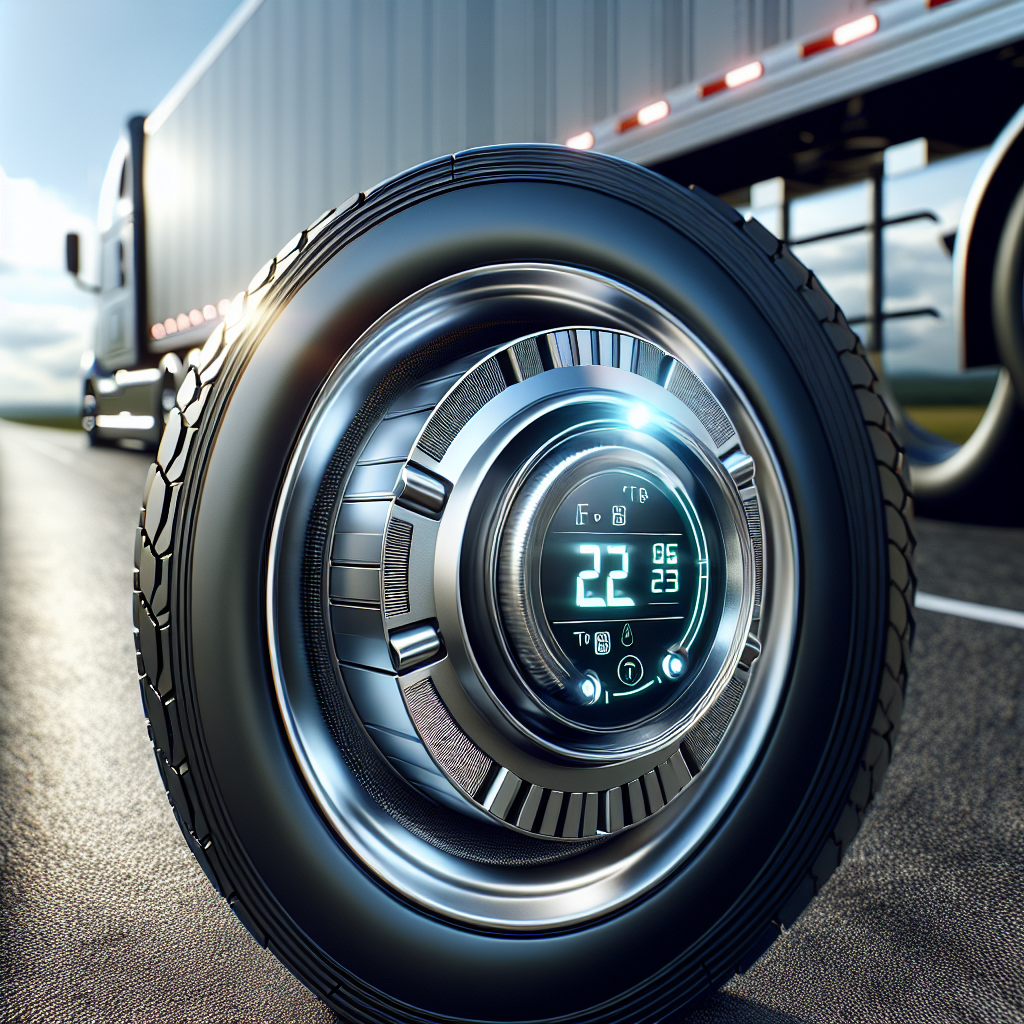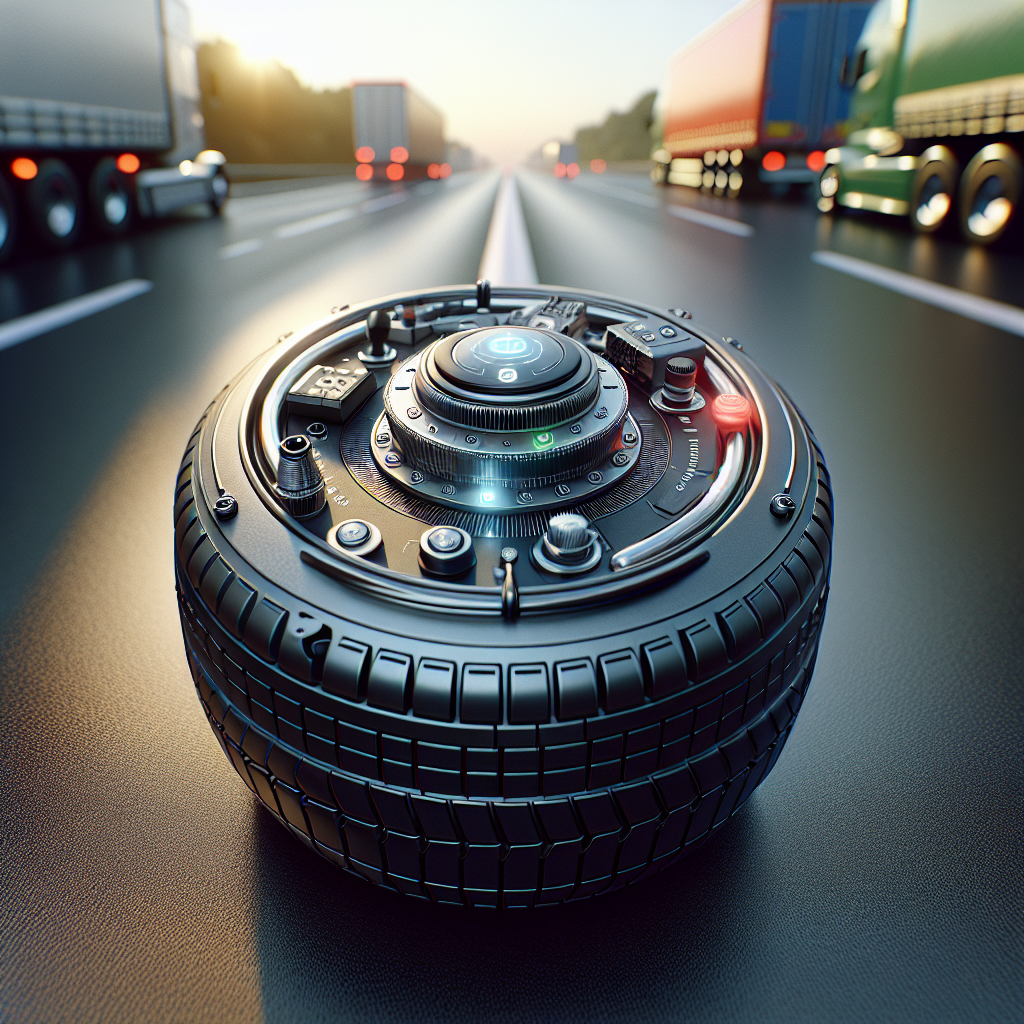Tire sensors play a crucial role in modern trailer monitoring systems, enhancing both safety and efficiency on the road. These sensors are designed to continuously monitor tire pressure and temperature, providing real-time data that is essential for maintaining optimal tire performance. By leveraging advanced technology, tire sensors help prevent catastrophic failures that can arise from under-inflated or overheated tires.
Understanding the tire sensor function involves recognizing how these devices operate and the benefits they offer. Typically, tire sensors are equipped with pressure and temperature gauges that relay information to a central monitoring system. This data can be accessed by drivers in real-time, allowing them to make informed decisions about their trailer's performance. Moreover, the integration of these sensors into a trailer monitoring system transforms any trailer into a smart trailer, ensuring that drivers are alerted to potential issues before they escalate.
With tire sensors, drivers gain peace of mind as they can easily manage their trailer's tire health and avoid unexpected breakdowns. Tow with peace of mind, knowing that trailerwatchdog is standing guard. Discover how you can enhance your trailer's safety by implementing tire sensors in your monitoring system.
How Tire Sensors Operate and Communicate

Tire sensors operate through a sophisticated mechanism that involves both hardware and software components working seamlessly together. At the core of each tire sensor is a pressure transducer and a temperature sensor, which continuously measure the tire pressure and temperature. These sensors are typically mounted on the valve stem of the tire, ensuring accurate readings in real-time.
Once the tire sensors collect data, they communicate this information wirelessly to a central control unit or monitoring system. This communication is often facilitated through radio frequency (RF) technology, which enables the sensors to transmit data over short distances without the need for complicated wiring. The central system then processes this information, allowing drivers to view real-time metrics on tire conditions via a digital display or a mobile application.
Furthermore, tire sensors are designed to operate efficiently, even under extreme conditions. They are often equipped with their own power source, typically a small battery, which ensures continuous operation without relying on the vehicle's power supply. The data transmitted is not only crucial for immediate tire management but also plays a vital role in predictive maintenance, allowing for early detection of potential issues.
By understanding how tire sensors operate and communicate, trailer owners can appreciate the value these devices bring in terms of safety, efficiency, and overall trailer performance.
Benefits of Using Tire Sensors in Trailers

Incorporating tire sensors into trailers offers numerous advantages that enhance safety and operational efficiency. One of the primary benefits is the continuous monitoring of tire pressure and temperature, which helps prevent catastrophic tire failures. By providing real-time data, tire sensors enable drivers to identify issues before they escalate, reducing the risk of accidents and costly repairs.
Another significant advantage is improved fuel efficiency. Properly inflated tires can lead to better fuel economy, as they reduce rolling resistance. When tire sensors alert drivers to low pressure, it allows for timely adjustments, ensuring that trailers operate at optimal levels. This not only saves money on fuel but also contributes to a more environmentally friendly operation.
Additionally, tire sensors facilitate predictive maintenance. By analyzing tire data over time, fleet managers can identify patterns that indicate wear or potential failure. This proactive approach allows for strategic planning of tire replacements and maintenance schedules, significantly extending the lifespan of the tires and enhancing overall trailer reliability.
Moreover, the integration of tire sensors can lead to decreased downtime. With instant alerts on tire conditions, drivers can address issues promptly, minimizing delays in transport schedules. This increased operational efficiency is crucial for businesses that rely on timely deliveries.
Overall, the benefits of using tire sensors in trailers are clear: enhanced safety, improved fuel efficiency, predictive maintenance, and reduced downtime, making them an invaluable addition to any trailer monitoring system.
Common Types of Tire Sensors Available

Understanding the common types of tire sensors available is essential for selecting the right technology for your trailer monitoring needs. There are primarily two categories of tire sensors: Direct Tire Pressure Monitoring Systems (TPMS) and Indirect TPMS.
Direct TPMS utilizes sensors mounted directly on the tire valve stems. These sensors provide real-time data on tire pressure and temperature, transmitting this information to the vehicle's onboard computer. The advantages of direct TPMS include high accuracy and immediate alerts on pressure changes, making them ideal for proactive maintenance.
On the other hand, Indirect TPMS does not use physical sensors in the tires but instead relies on the vehicle’s wheel speed sensors and ABS (Anti-lock Braking System) to estimate tire pressure. While indirect systems are generally more cost-effective and easier to install, they may not provide the same level of precision as their direct counterparts.
Additionally, some advanced tire sensors come equipped with temperature monitoring capabilities. These sensors continuously track not just tire pressure but also the heat generated during operation. This dual-monitoring feature is crucial, as overheating can lead to tire blowouts, especially under heavy loads.
Another notable type is the Bluetooth-enabled tire sensors, which allow drivers to access real-time data through a smartphone app. This technology offers convenience and enhances the user experience by providing detailed insights into tire conditions at the touch of a button.
Overall, selecting the right type of tire sensor depends on various factors, including budget, accuracy needs, and specific operational requirements. Understanding these options will help trailer owners make informed decisions to enhance safety and efficiency.
Challenges and Limitations of Tire Sensors
While tire sensors play a critical role in enhancing safety and efficiency, they also come with certain challenges and limitations that users should be aware of. Understanding these issues can help trailer owners make informed decisions regarding their monitoring systems.
One of the primary challenges is the cost of installation and maintenance. Direct TPMS, for example, can be more expensive due to the need for specialized sensors and installation processes. Additionally, these sensors may require regular battery replacements, adding to the long-term maintenance costs.
Another limitation involves sensor reliability. Environmental factors such as extreme temperatures, moisture, and road conditions can affect sensor performance. If a sensor fails or provides inaccurate readings, it can undermine the entire monitoring system's effectiveness, potentially leading to dangerous situations.
Moreover, compatibility issues can arise, especially when integrating tire sensors with existing trailer monitoring systems. Older trailers may not be equipped to support modern sensor technology, leading to additional costs for upgrades or replacements.
There is also a data overload concern. With the ability to monitor multiple parameters, users may find it challenging to interpret the data effectively. Without proper training or user-friendly interfaces, critical information may be overlooked, reducing the system's overall utility.
Lastly, regulatory compliance can be a hurdle, as not all jurisdictions have clear guidelines regarding the use of tire sensors. This inconsistency can impact the adoption of these technologies across different regions.
Despite these challenges, the benefits of tire sensors far outweigh their limitations. By being aware of these potential issues, trailer owners can better prepare and adapt their monitoring strategies.
Future Trends in Tire Sensor Technology

The future of tire sensor technology is poised for significant advancements, driven by the increasing demand for safety, efficiency, and automation in the transportation industry. As we look ahead, several key trends are emerging that promise to redefine how tire monitoring systems operate.
One prominent trend is the integration of IoT (Internet of Things) capabilities. By connecting tire sensors to a broader network, data can be transmitted in real-time to fleet managers and drivers. This connectivity enables proactive decision-making, as stakeholders can monitor tire conditions remotely and receive alerts about potential issues before they lead to failure.
Another exciting development is the advancement of predictive analytics. With the help of artificial intelligence, tire sensors will not only monitor current conditions but also analyze historical data to predict future performance. This capability can help in scheduling maintenance and reducing downtime, ultimately leading to cost savings for trailer operators.
Moreover, miniaturization and enhanced durability of sensors are on the horizon. Future tire sensors are expected to be smaller, lighter, and more resilient to harsh environmental conditions, making them easier to install and maintain. These innovations will contribute to a more streamlined design, promoting user accessibility.
Additionally, the evolution of battery technology is expected to improve sensor longevity by reducing the need for frequent replacements. This enhancement will not only lower maintenance costs but also ensure that tire sensors remain functional for a longer duration.
As trailer monitoring systems continue to evolve, it’s essential for operators to stay informed about these trends and consider implementing the latest technologies. To stay ahead of the curve and enhance your trailer’s safety and efficiency, tow with peace of mind, knowing that TrailerWatchdog is standing guard. Visit trailerwatchdog.com to learn more about our innovative solutions.








